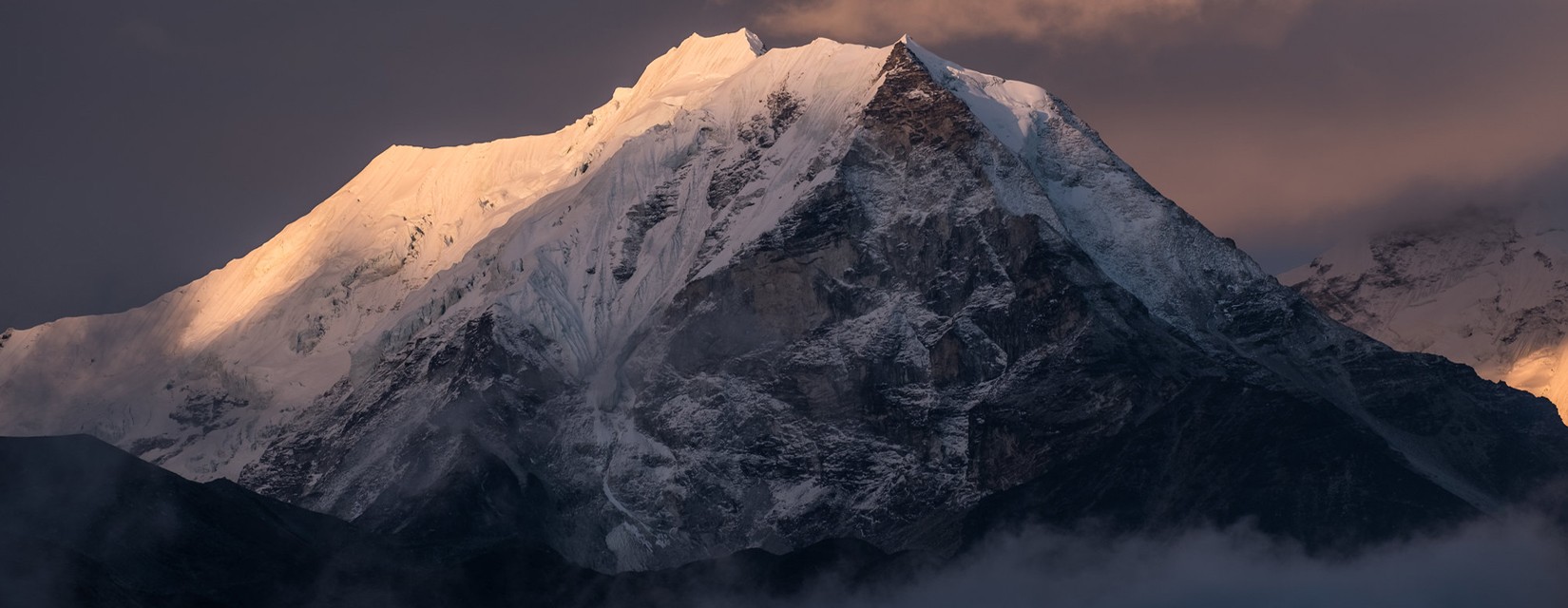About Everest Base Camp Trek & Island Peak Climbing | Adventure Peak Expedition Nepal
Everest Base Camp Trek Island Peak Climbing 2026
The Everest Base Camp Trek with Island Peak Climbing, organized by Himalayan Asia Treks and Expedition Pvt Ltd, offers adventurers a remarkable trekking through the heart of the Nepal’s Himalayas. The trek begins with the iconic Everest Base Camp, where trekkers can immerse themselves in breathtaking views before ascending to Island Peak. The Island Peak Base Camp altitude is approximately 5,200 meters, providing a challenging yet rewarding experience. The Island Peak height reaches 6,189 meters, making it an ideal target for aspiring climbers. The best time to climb Island Peak is typically during the pre-monsoon months of April to May and post-monsoon in September to October. From the summit, climbers are often rewarded with stunning vistas, including the chance to see Everest itself, creating an unforgettable adventure. Prices and costs for this incredible trek vary, but Himalayan Asia Treks ensures competitive pricing for this once-in-a-lifetime experience.
Island Peak Climbing with EBC Trek is a perfect trek for trekkers who have novice trekking experience but want to trek in the Everest Base Camp and Island Peak Climbing. It is a great blend of trekking in Everest and climbing to Island in the glorious Himalayas. You get to see the most spectacular views of the mount Everestand other himalaya that smile at you with the shining snow.
Everest Base Camp Trek with Island Peak Climbing provides you with the most scenic sight of Mount Everest and other tall mountains. The gigantic glaciers surround the incredible island of rock and ice. The mesmerizing view of Everest from Kala Patthar is the best thing to experience in life. Not only for the natural views, but you also get to learn a lot about climbing and trekking in Everest. A journey to Island Peak is a perfect learning paradigm for travelers.
Island Peak Trek with EBC | the Best Beginner Friendly Everest Base Camp Trek
As most of all know, Everest Base Camp Trek is a trek that demands great physical ability and experience. Not everyone can complete the Everest Base Camp Trek. Some beginner-level trekkers want to experience the joy of being on a journey to Everest. Island Peak Climbing Trek with Everest Base Camp is the perfect trek for people who want to experience the joy of going to Everest. Also, Acclimatization during the Island Peak Trek is generally more than a normal EBC Trek. So, your body adapts well to the thinning air. All in all, Island Peak Climbing with EBC Trek can be the best version of EBC Trek for all trekkers.
Overview: Everest Base Camp Trek Island Peak Climbing
The Island Peak Trek starts with a scenic flight from Kathmandu to Lukla. It is like the first close interaction with the Himalayas. The trekking starts with the walk towards Phakding and finally towards Namche Bazar- The Himalayan Tourist Capital. A 6-7 hours upper hike towards Tengboche, Pheriche, and Lobuche makes EBC Trek nearer to your feet and sight.
The best part about the climbing to Peak Island Trek and hike to Kala Patthar for 360 degree view of Mt Everest. The majestic view of the world’s highest peak from there is like the image you will adore in your heart forever. Many travelers have said that the best Everest view comes from Kala Patthar. You also get to see the Khumbu Glacier during the trek- one of the most exciting places around the Everest Region. The pre-climb training on Island Base Camp is perfect for preparing for the long Everest Base Camp Trek.
Summiting the Island Peak and descending to Namche Bazar through Panboche is all about remembering all the fun times you had in the Himalayas. The experience and fun you have in the Island Peak Everest Base Camp (EBC) Trek are unparalleled to other joys.Out of many Island Peak Climbing Trek, the 20 days itinerary trek is the most popular. As you are going to Everest Base Camp, acclimatization is most needed. And in 20 days, you get to take proper rest and climb the high mountains exploring the amazing trails.
The 20 days Island Peak Climbing with EBC Trek brought to you by Himalayan Asia Trek is one of the best out there. Everything comes together with a perfect trek plan of acclimatization, trekking, lodging, and safety procedures.
Accommodation in Island Peak Everest Base Camp Trek
We, Himalayan Asia Treks and Expedition P Ltd provide the best of Three Star hotels in Kathmandu. Besides city accommodation, we provide the best teahouse/lodges in Everest Base Camp Trekking and for Island Peak Climbing, we provide standard quality tents. Most lodges/teahouses have shared toilet facilities and shared rooms. While in the peak season of trekking in Nepal, hard to get a single and comfortable room so trekkers should have adjusted sometimes above Namche Bazar. While in Everest Base Camp Trek, there are some luxury lodges also available. If you want to book Luxurious Lodges in Everest Base Camp Trek, please let us know.
Best Time for Island Peak Climbing with Everest Base Camp Trek
The best time for Island Peak Climbing with Everest Base Camp Trek is autumn and spring season. Monsoon season and Winter Season is not a good season for Everest Base Camp Trek and Island Peak Climbing (Imja Tse). Although except for Monson season, throughout the year Island Peak Climbing with Everest Base Camp Trek is possible.
During the autumn season (March-April), it is the best time among other seasons because in this time the weather is the clearest as the monsoon rain clears out the sky. The views and scenery are magnificent and the temperature ranges from 0 degrees to 15 degrees on Everest.
The spring season (September to mid of December) is the best time for Island Peak Climbing with Everest Base Camp Trek including Nepal Trekking, Nepal Peak Climbing, and Nepal Tours. At this time, the weather is clear, and moderate view with an amazing blue sky. During this time, trekkers will see full of newly grown plants and flowers of rhododendrons.
How difficult is Island Peak Climbing
Everest Base Camp Trek with Island Peak Climbing is recommended for those trekkers/climbers who have an interest to climb different Himalayas peaks. In another word, Island Peak Climbing is for beginner mountain/Himalayas climbers. Climbing and trekking at higher altitudes requires being prepared physically and mentally. Trekkers or climbers have to walk 5-6 KM per day above 5000m by carrying their bag packing.
Everest Base Camp Trek is rather easy than Island Peak Climbing (Imja Tse) because of the high altitude. The main thing about climbing Island Peak is to be prepared mentally and follow your leader’s instructions. The foot of the headwall is the hardest part of the climb. Nevertheless, the Island climbing Trek route is safe with fixed lines all the way to the summit.
How long does it take to climb Island Peak?
Climbing Island Peak typically takes around 18 to 21 days, depending on the itinerary chosen including Everest Base Camp. This duration includes time for acclimatization, trekking to the base camp, and the actual summit attempt. The trek to Island Peak is usually combined with a visit to Everest Base Camp, which helps climbers adjust to the high altitude before tackling the peak itself.
Which is harder, Mera Peak or Island Peak?
While both Mera Peak and Island Peak are popular trekking peaks in Nepal, Island Peak is generally considered more technically challenging than Mera Peak. Mera Peak is higher in altitude at 6,476 meters, but its ascent is less technical, making it more suitable for trekkers with limited climbing experience. Island Peak, at 6,189 meters, involves steeper sections, the use of ropes, ice axes, and crampons, making it a more demanding climb despite being slightly lower in altitude.
Can you climb Island Peak without a guide?
Climbing Island Peak without a guide is not recommended, especially for those without prior high-altitude climbing experience. While technically possible for highly experienced mountaineers, having a guide ensures safety, proper route navigation, and assistance with the technical aspects of the climb. Additionally, most permits for Island Peak require you to be part of an organized expedition, which typically includes a guide.
How much does it cost to climb Island Peak?
The cost to climb Island Peak varies based on the length of the trip, the services included, and the type of accommodation. On average, a guided expedition to Island Peak can cost anywhere from $2,500 to $4,000. This price generally includes permits, accommodation, meals, guides, and porters, but additional expenses like gear rental, tips, and personal expenses should also be considered.
Essential Tips for Island Peak Climbing
- Choose the best time to climb Island Peak like Spring or Autumn season.
- Prepare yourself mentally and physically before your journey starts.
- Prepare your essential equipment and other related tools discussing your Travel Consultant.
- Necessary Clothing and other gears for climbing and trekking.
- Follow up on your Leader’s instructions.
- How to use climbing gears.
- Follow guides rules and regulations.
- Take care of your health.

